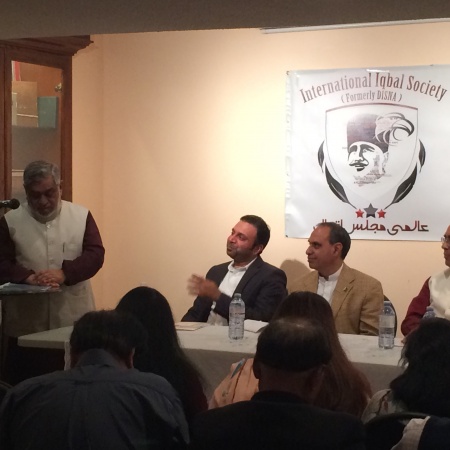Hamas Crackdown
Courtesy Arab News
 The reported crackdown by Hamas on Palestinians wanting to perform the Hajj highlights the depth of the bitterness Hamas and Fatah have sunk to. That Hamas police may have set up checkpoints across Gaza to prevent pilgrims from leaving for the Hajj simply because the pilgrims coordinated their journey with the Palestinian Authority instead is serious as it is ironic. The ban on the Hajj is unbecoming of an Islamic movement. What is the problem in agreeing on national aspirations and a common strategy? Why does inter-Palestinian dialogue run into one obstacle after another? One reason is that Hamas is trying to create a new organizational, ideological, and political frame of reference for the Palestinian people that the PA rejects.
The reported crackdown by Hamas on Palestinians wanting to perform the Hajj highlights the depth of the bitterness Hamas and Fatah have sunk to. That Hamas police may have set up checkpoints across Gaza to prevent pilgrims from leaving for the Hajj simply because the pilgrims coordinated their journey with the Palestinian Authority instead is serious as it is ironic. The ban on the Hajj is unbecoming of an Islamic movement. What is the problem in agreeing on national aspirations and a common strategy? Why does inter-Palestinian dialogue run into one obstacle after another? One reason is that Hamas is trying to create a new organizational, ideological, and political frame of reference for the Palestinian people that the PA rejects.
Meanwhile, as PA security forces in the West Bank continue to round up Hamas activists, a halt to the detention of Hamas members and the release of those currently held is a precondition to agreeing to accept any invitation to host inter-Palestinian dialogue talks. Detentions will force Hamas into making concessions, especially with regard to the extension of Mahmoud Abbas’ term of office. And detentions will only reinforce the Hamas belief that the PA is in cahoots with Israel. When a Palestinian security agency arrests a political leader who has just been released from an Israeli prison where he had been detained on the grounds of threatening Israeli security, is this not a flagrant effort on behalf of Israel? It appears that the Egyptian government is still upset at Hamas for turning down its invitation to attend Palestinian reconciliation talks in Cairo. But the smart thing Egypt and all other Arab countries should do is not to take sides in the internal Palestinian factional dispute and refrain from apportioning blame.
That is an important codicil. It would be a serious mistake if outside parties take it upon themselves to determine which Palestinian faction is responsible for the failure of national dialogue.
It is possible to come up with creative formulas for bridging the gap between the two sides in a manner that will enable both to feel that their interests will be met. Hamas and Fatah each claim to be legitimate and their wrangle over who has the authority to send Gaza pilgrims for the Hajj is a test of how sovereign they want to appear to their constituencies. But their claim of independence means they will never unite for the good of their one cause: An end to the occupation and a single state.
There are many reasons why inter-Palestinian dialogue is difficult, yet even when combined they are insufficient to explain why a compromise solution cannot be found. Even the most pessimistic Palestinians would not have imagined that acrimony between Fatah and Hamas could have reached its current pitch of vehemence. The war of words, recriminations and suspicions, and the insults and accusations hurtling back and forth seem to form an impenetrable wall between the Palestinian people and the national reconciliation they long for. Only strong, serious, fair and objective intervention stands a chance of persuading the two sides to resume dialogue.
10-50, reprint












2008
747 views
views
0
comments